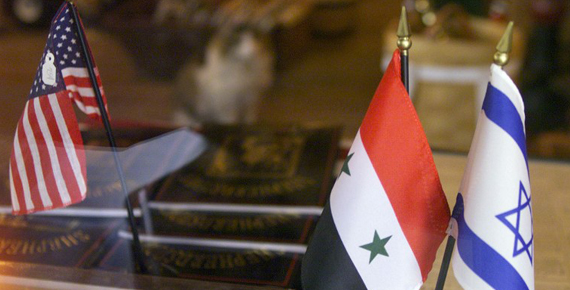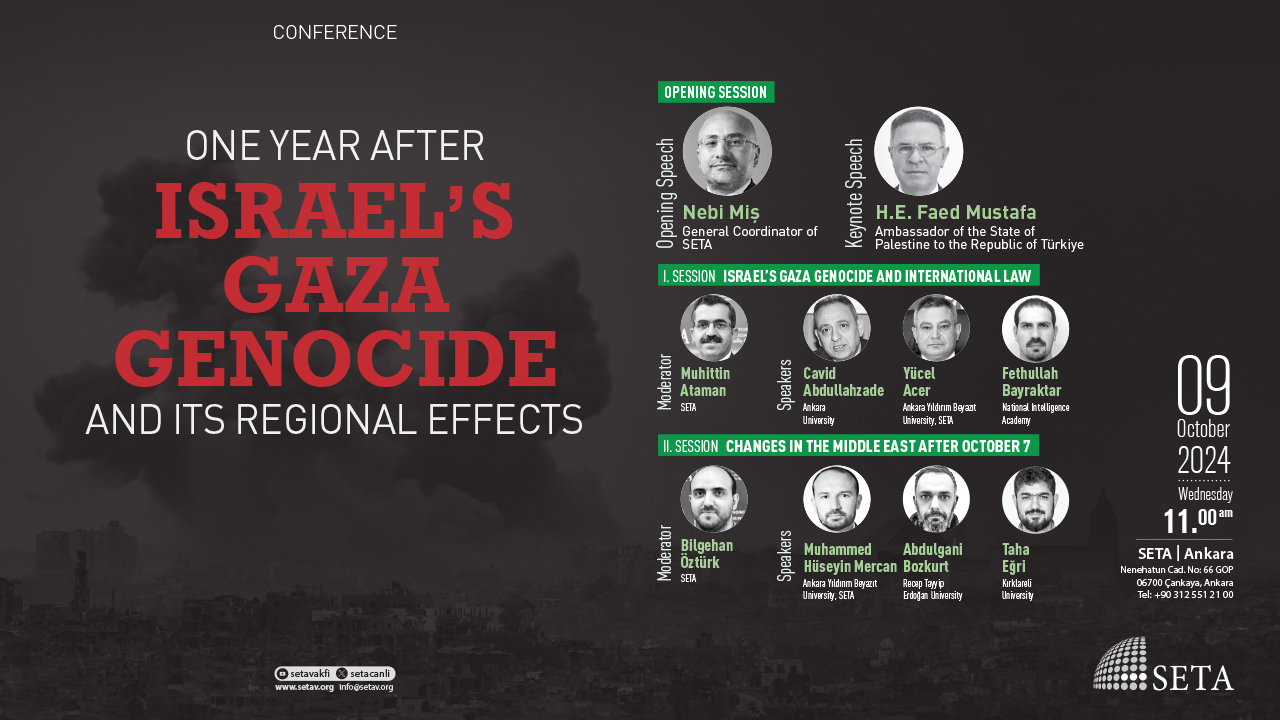To better read the signs, I paid a visit to one of the most significant think-tanks in our country, SETA, and interviewed the president, Taha Özhan. Taha Özhan, who continues his PhD studies on Global Political Economy in New School for Social Research, is one of the few people who have a good grasp of the Middle East.
People in the region have seen no peace for years. They suffered a lot during the U.S. occupation of Iraq. Now in the wake of the U.S. withdrawal from the region, the developments seem to not bode well. What is happening?
The U.S. occupation of Iraq is a crucial issue. SETA is the first institution both in Turkey and in the region to analyze this issue. Numerous books and analyses have been published on the issue in Washington and London; unfortunately, however, our region has not produced any analyses at all.
The catastrophe actually took place in this region. So why hasn’t there been any analysis?
They take the easy way out—translation. In any case, others make the analysis in another language, generally in English. You got this analysis through translation. Then you are obliged to take benefit from an analysis—which was made by another region—here in this region, in Ankara or in Baghdad. The cost of translation may be low but this has a high social and political cost. We at SETA wanted to do the opposite and after about a year of research, we published our Iraq report in 2006. We have been obliged to cite this report in the subsequent analyses we published. The report then argued that the U.S. would not lose in the occupation of Iraq. This came true.
To make a general evaluation, do you believe that the occupation eventually failed?
If you consider the occupation from a naive, liberal perspective, then you will see that many U.S. soldiers died in the war, U.S. image was tarnished, the occupation had a high economic cost for the U.S., the Bush administration failed and the U.S. couldn’t establish its dominance in the region although it occupied Iraq. These are true, but what is more serious is that occupation of Iraq triggered the social and political fault lines in our region. Today in the wake of the U.S. withdrawal from the region, we recognize that these ethnic and sectarian fault lines may generate dangerous political tsunamis and we don’t know where, when and how these fault lines may lead to a catastrophe.
FAVORABLE RESULTS OF THE OCCUPATION OF IRAQ
But we foresee that the catastrophe is close, right?
We don’t know. Nothing may happen. But we know that this occupation led to ruptures. This is the evil side.
On the other hand, U.S. occupation also contributed to some favorable ruptures. In this sense, the negative energy in the region—which has been accumulated for 30 years in the “Camp David order”—came out in the aftermath of the occupation. This negative energy was the last straw and acted as a catalyst for societal change, mobilizing the Middle East and North Africa.
Did it have the same effect in Turkey?
In the wake of the Iraqi occupation, Turkey adopted an active foreign policy as never before. During the process—which began when Turkish Parliament rejected a resolution authorizing the deployment of U.S. forces to Turkish territory—Turkey not only gained prestige but also avoided being a part of the catastrophe. It was necessary for Turkey to take positive steps and be visionary in order to not get involved in the catastrophe. For the first time in the history of Republic, Turkey organized the Conference of Neighboring Countries. Indeed, Turkey had serious problems with these neighbors. However, Turkey set aside these problems and maintained good relations by adopting the policy of zero problems with neighbors. Turkey not only maintained relations on official level, but many non-state actors had great influence o







